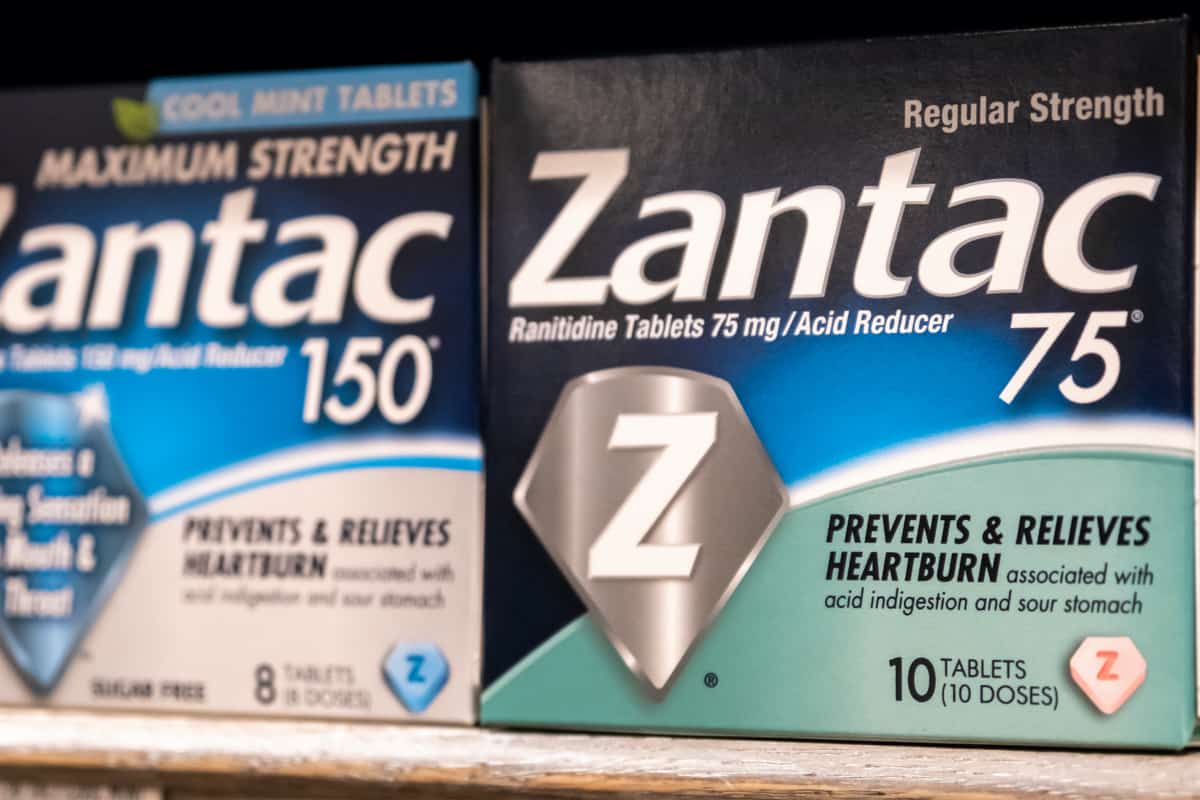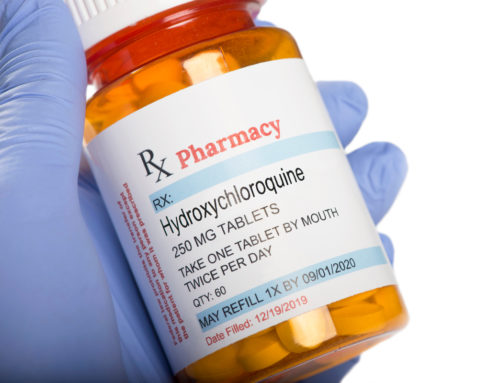According to the American College of Gastroenterology, approximately 60 million Americans suffer from heartburn each month, and some studies indicate that more than 15 million Americans experience heartburn symptoms each day. Ranitidine (commonly known by its brand name, Zantac), which is sold by the drug company Sanofi, is commonly used to treat and prevent heartburn. Ranitidine is part of a class of drugs known as histamine H2-receptor antagonists (or H2 blockers). These drugs reduce the amount of acid produced by the stomach. The medication is available both over the counter (OTC) and by prescription.
What is the history of Zantac?
Zantac came on the market in 1981, and then became available for over-the-counter use in 1988. It is widely used and generally less expensive than similar medications. It was the 50th most prescribed medication in the United States, with more than 15 million prescriptions in 2017.
On September 13, 2019, the FDA announced that preliminary tests found low levels of N-nitrosodimethylamine (NDMA) in ranitidine. Over the next few months, several companies implemented a voluntary recall of the medication.
On April 1, 2020, The U.S. Food and Drug Administration requested that manufacturers withdraw all prescription and over-the-counter ranitidine drugs from the market immediately. The request came as a result of an investigation of a contaminant called N-Nitrosodimethylamine (NDMA) found in ranitidine medications. Researchers found that the amount of the contaminant in some ranitidine products becomes greater the longer it is used. It also increases when stored at temperatures higher than room temperature. Therefore, consumers may be exposed to unacceptable levels of NDMA and ranitidine products became unavailable for new or existing prescriptions or over the counter use in the U.S.
What is NDMA?
NDMA is an environmental contaminant that is found in water and foods, including dairy products, vegetables, and cured meats and fish. It may also be found in beer and tobacco smoke. NDMA is classified as a probable carcinogen based on research performed on animals. Research on humans is limited. The results of early testing by the FDA showed that some samples of Zantac and ranitidine had higher levels of NDMA than food.
What types of cancer have Zantac and ranitidine been linked to?
The National Toxicology Program (NTP) reasonably believes that NDMA is a human carcinogen and the Environmental Protection Agency (EPA) considers it a probable human carcinogen. NDMA exposure from ranitidine is also linked to several other cancers such as:
- Brain
- Bladder
- Colorectal
- Esophageal
- Kidney
- Liver
- Lung
- Pancreatic
- Testicular
How do you know if you have been affected?
If you or someone you love takes Zantac or took it in the past, it is important of cancer symptoms. Common cancer symptoms in cases involving Zantac and ranitidine include:
- Unintended weight loss
- Appetite loss
- Vomiting or nausea
- A change in bowel habits, or bloody, tarry or greasy stools
- Weakness, dizziness, fatigue, or other symptoms of anemia
- Abdominal discomfort not related to heartburn
- Back pain
- Yellowing of the skin or eyes
- Dark urine
- Blood in the urine
- Incontinence, urinary urgency, or painful urination
- Itching
If you are experiencing any of these or other cancer symptoms, see your medical provider right away. Even if you are not experiencing symptoms, if you have been taking Zantac, you should discuss your concerns with your doctor. Patients currently taking prescription ranitidine should speak with their physician about new treatment options before ending the medicine use. There is no way to determine your risk, but animal testing has revealed that higher doses and the longer exposure to NDMA increases the risk of cancer in test animals.
How a Zantac attorney can help you
Consumers should be able to trust that the medications they use will not make them sick. Sanofi and other companies responsible for Zantac should be held accountable for putting dangerous drugs on the market. In some cases, drug companies fail to warn consumers and continue marketing a drug they probably knew was dangerous. When drug manufacturers are negligent, patients often suffer a serious illness. If you are currently using prescription or over-the-counter Zantac or ranitidine, you may need the help of an experienced Zantac attorney. Your attorney will help you pursue you case and establish that:
You used Zantac or ranitidine. If your medication was prescribed, it is easy to obtain the necessary records through your doctor or pharmacy. If you bought the medication over-the-counter, your lawyer can help you prove your case, using receipts and doctor records.
You have cancer. In order to prevail, you will have to prove not only that you have cancer but that the type of cancer you have is linked to NDMA. Doctors and other medical experts can establish this.
Prove that the two are connected. There is information and studies showing that cancer and Zantac or ranitidine are linked. However, your attorney and doctors must show that you consumed enough of the medication for it to have been dangerous. Essentially, the longer you took the medication, and the more of it you took, the more likely it is that your cancer and your consumption of the drug are connected.
What types of compensation might be available?
Anyone with cancer knows how expensive medical costs can be. From radiation to chemotherapy and medications, cancer-related costs can be overwhelming. If you developed cancer after taking Zantac, you may be entitled to collect damages, or monetary compensation, to help you recover from your loss or injury.
You might be entitled to receive compensation from the makers of Zantac for damages including:
- Past and future medical expenses from NDMA exposure
- Past and future pain and suffering (physical and mental) caused by your injuries, as well as the treatment and recovery process
- Past and future lost wages
- Past and future loss of earning capacity
- Past and future loss of enjoyment of life
- Punitive damages (in some cases)
If you or a family member have taken ranitidine (Zantac) and suffered a cancer injury as a result, an experienced Zantac attorney can evaluate your case and help you assess your legal options. For further information or a free consultation, call Allan Berger & Associates at 504-618-1597 or contact us online.








